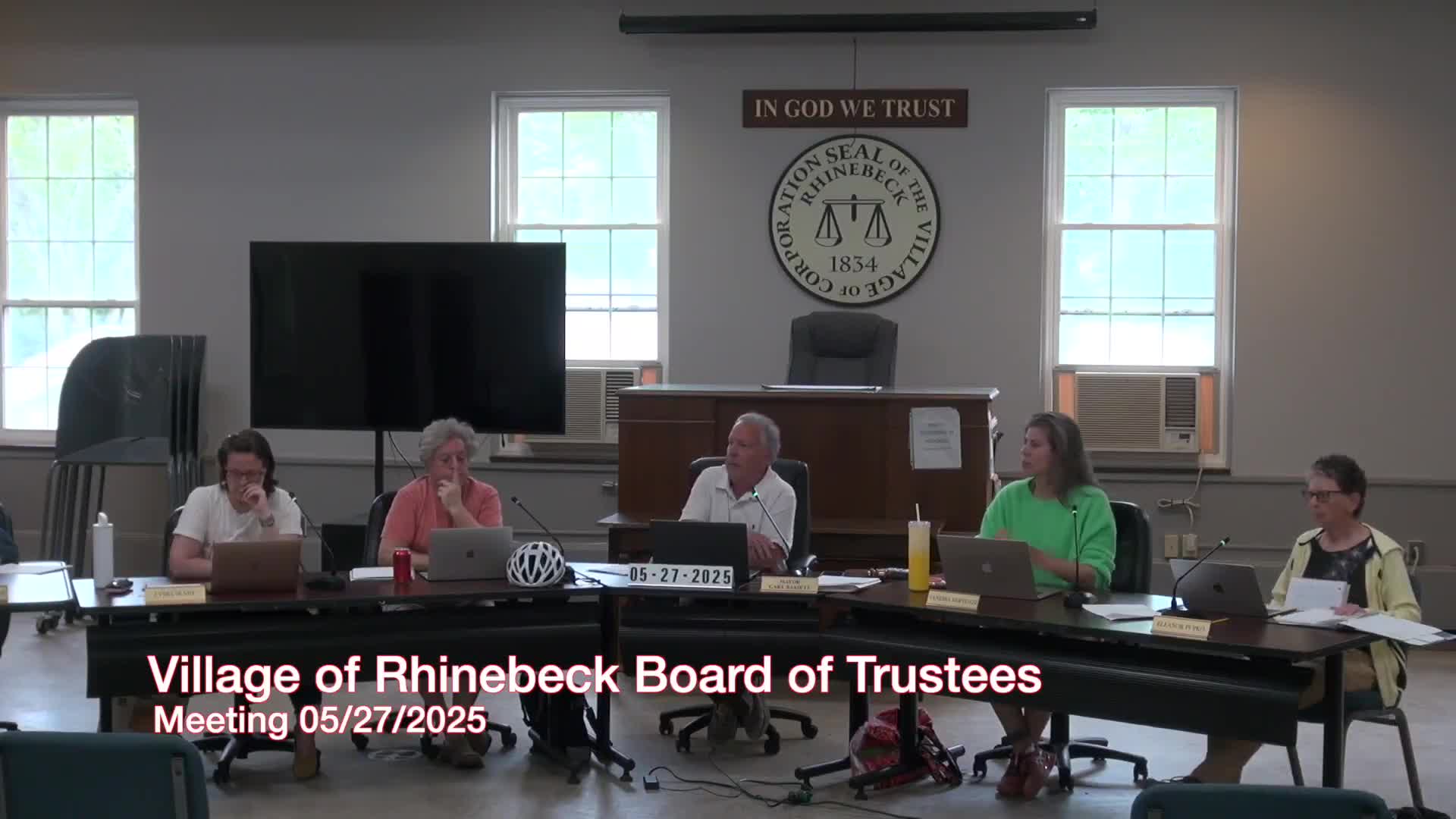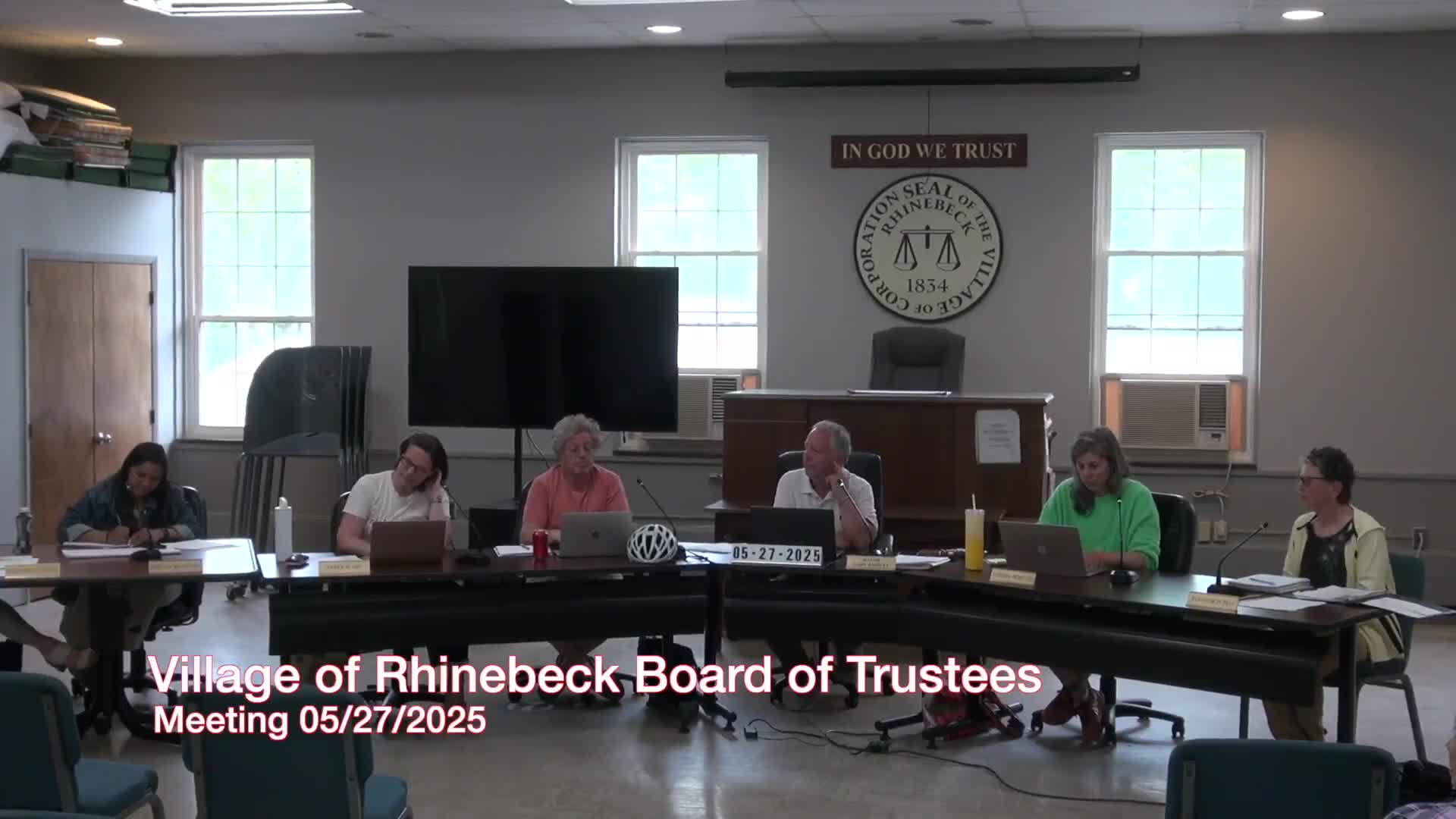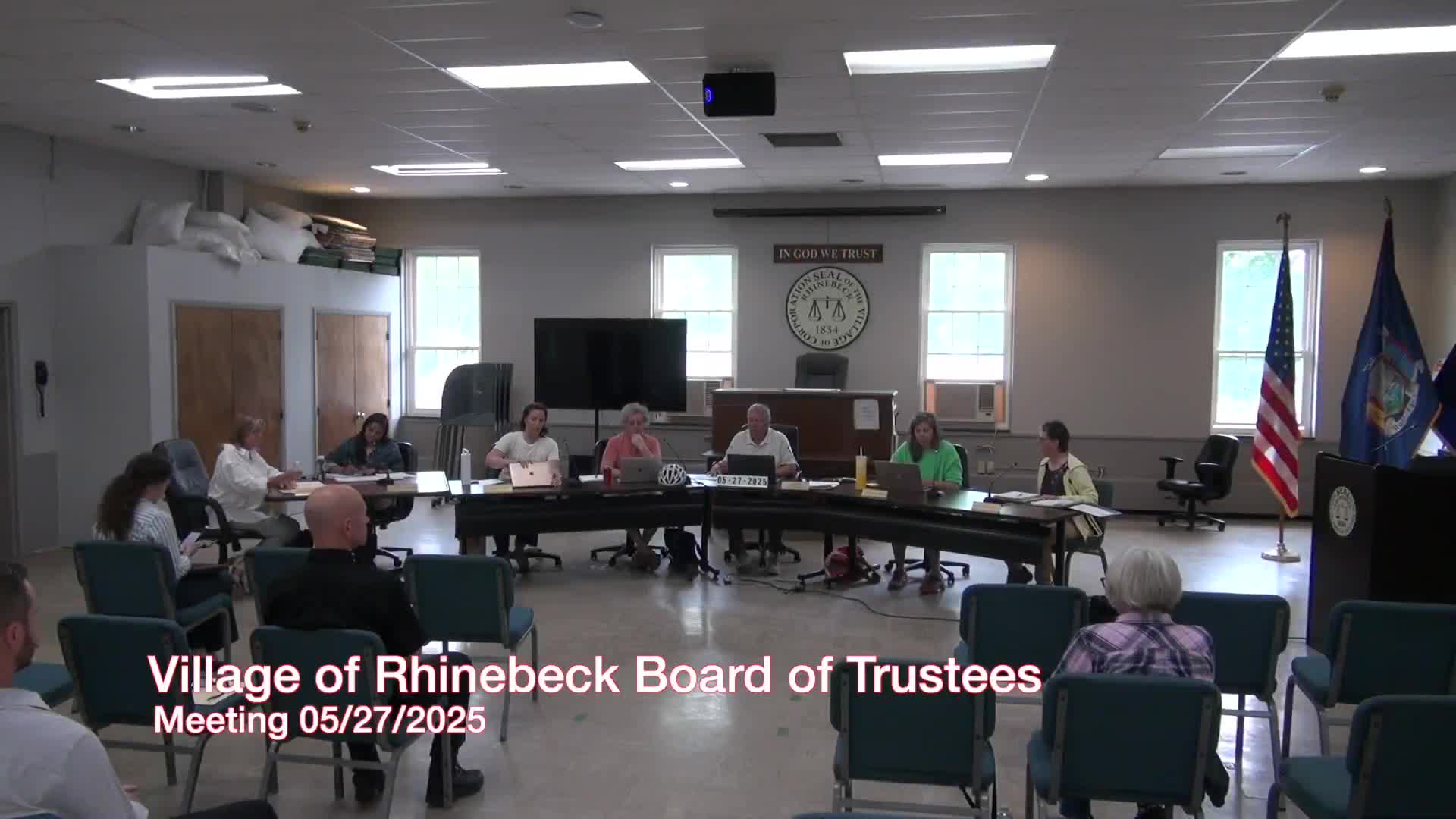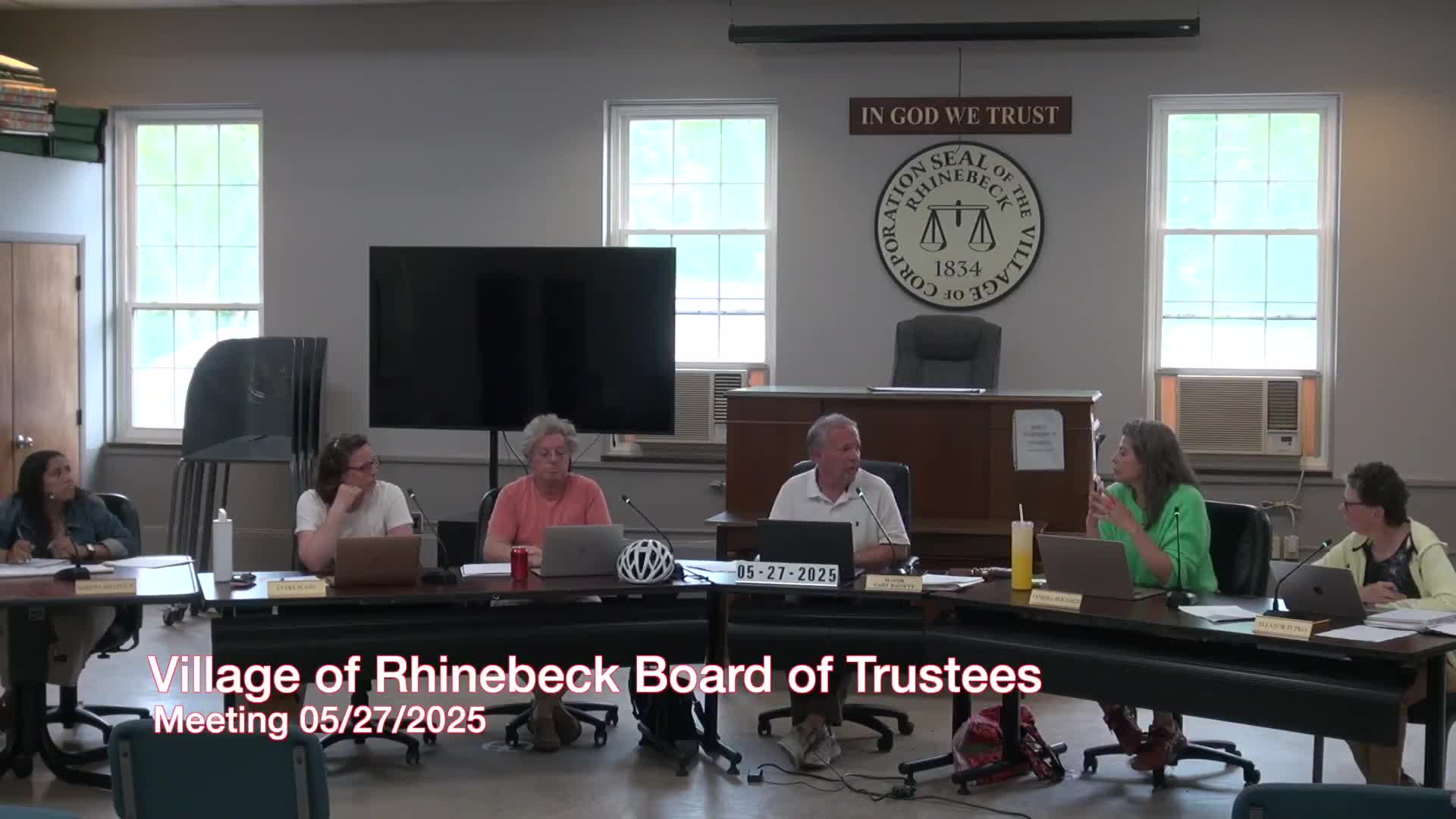Article not found
This article is no longer available. But don't worry—we've gathered other articles that discuss the same topic.

Proposal to design pedestrian crosswalk at East Market and Center prompts debate over flashing beacons and fund‑balance use

Rhinebeck trustees press staff for invoices after $100,000 water/sewer overage request; vote tabled

Rhinebeck trustees approve hires, construction change order and several routine resolutions

